Abstract
The photoinduction of fruiting bodies by light of defined wavelengths was studied in the fungus Schizophyllum commune Fr. Several properties of the induction were established. (1) The exposure-response relationship for induced fruiting was determined for light of 448 nm. (2) The Bunsen-Roscoe Law of Reciprocity was found to hold for the photoinduction of fruiting bodies for the interval 36 to 2000 sec with light of 448 nm. (3) Light of wavelengths from 320 nm to 525 nm induced fruiting bodies. Although the photoreceptor is unknown, it may be a flavin rather than a carotenoid, because light in the near ultraviolet (350 nm-400 nm) was inductive. (4) Neither red light (660 nm) nor far-red light (730 nm) induced fruiting bodies or affected the sensitivity of the fungus toward photoinduction by blue light (448 nm).
Full text
PDF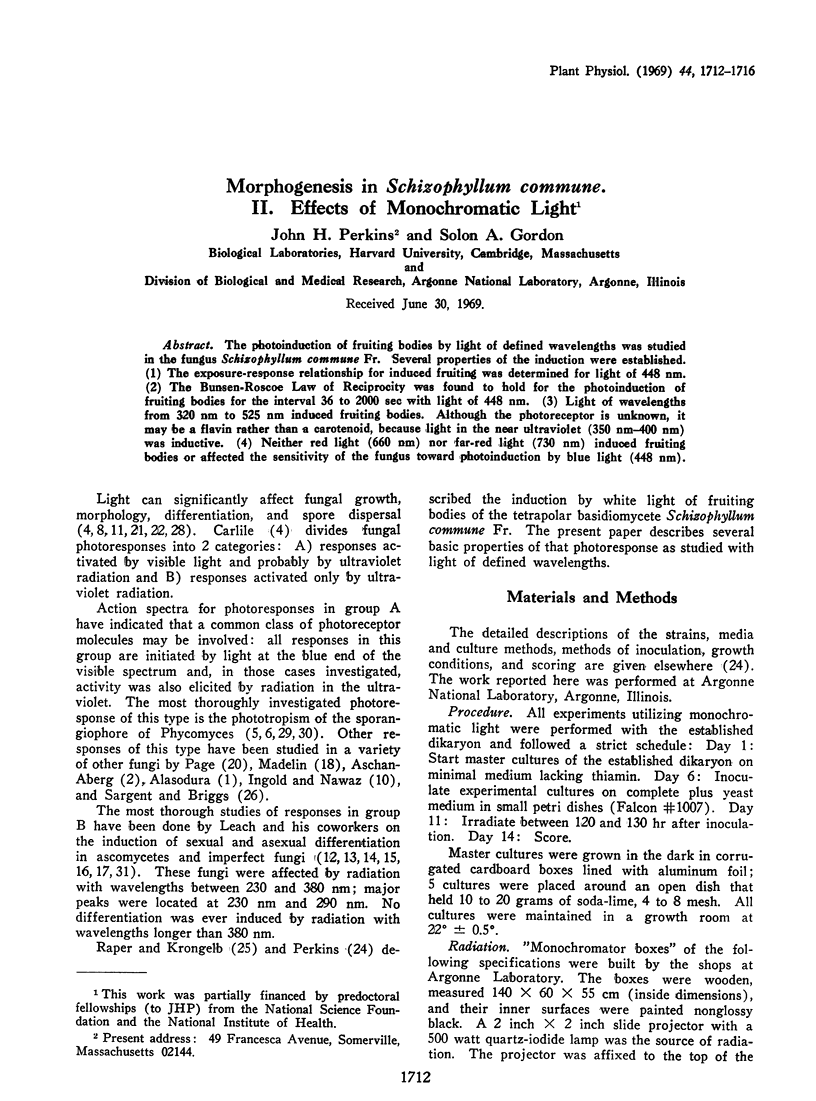
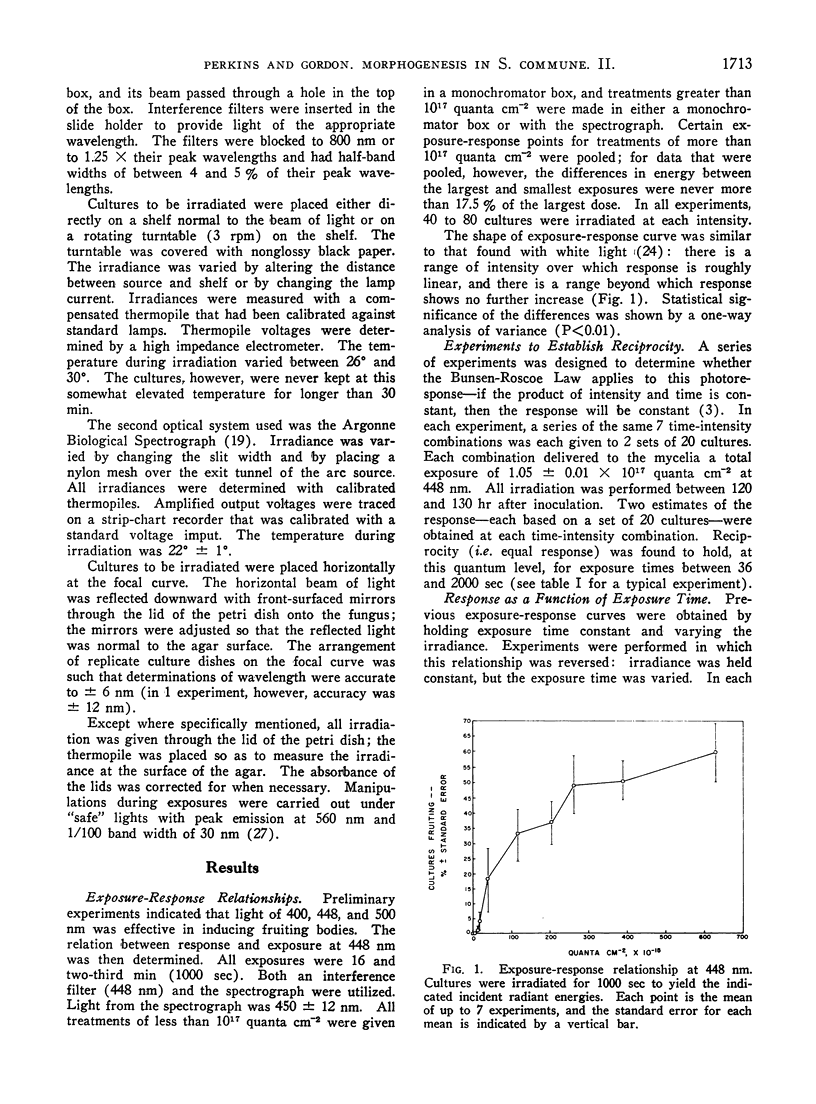
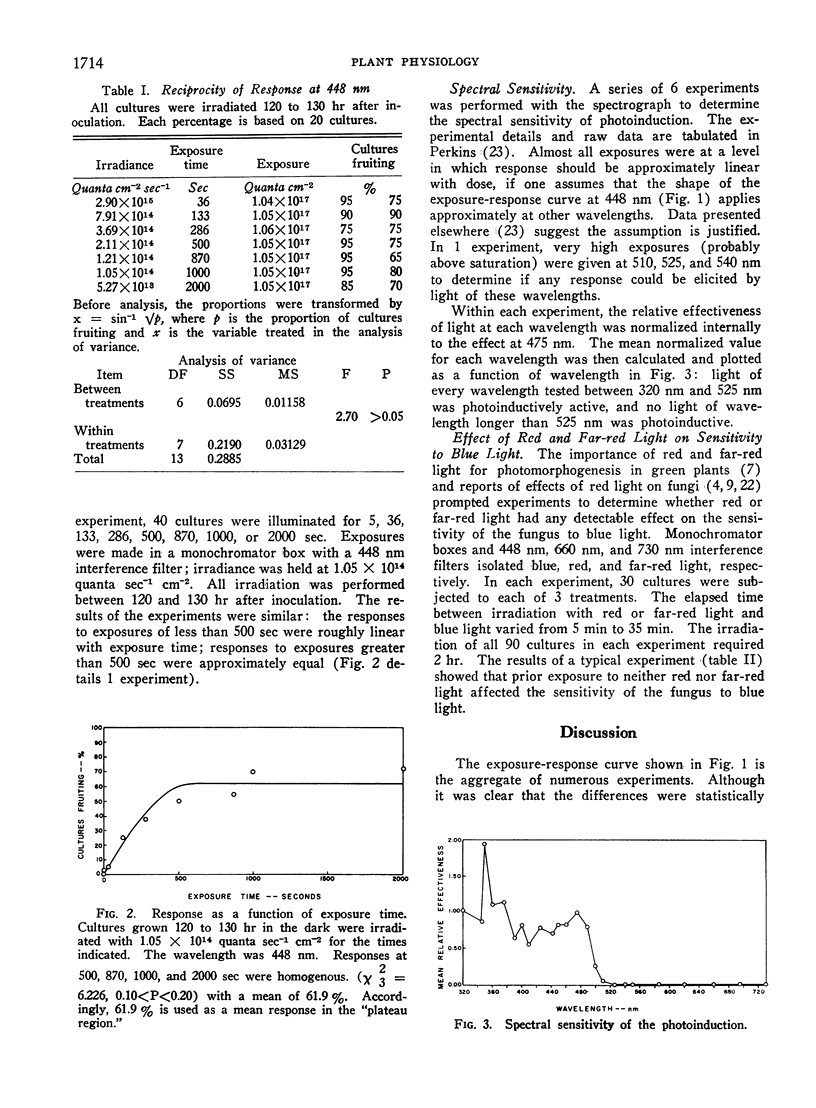
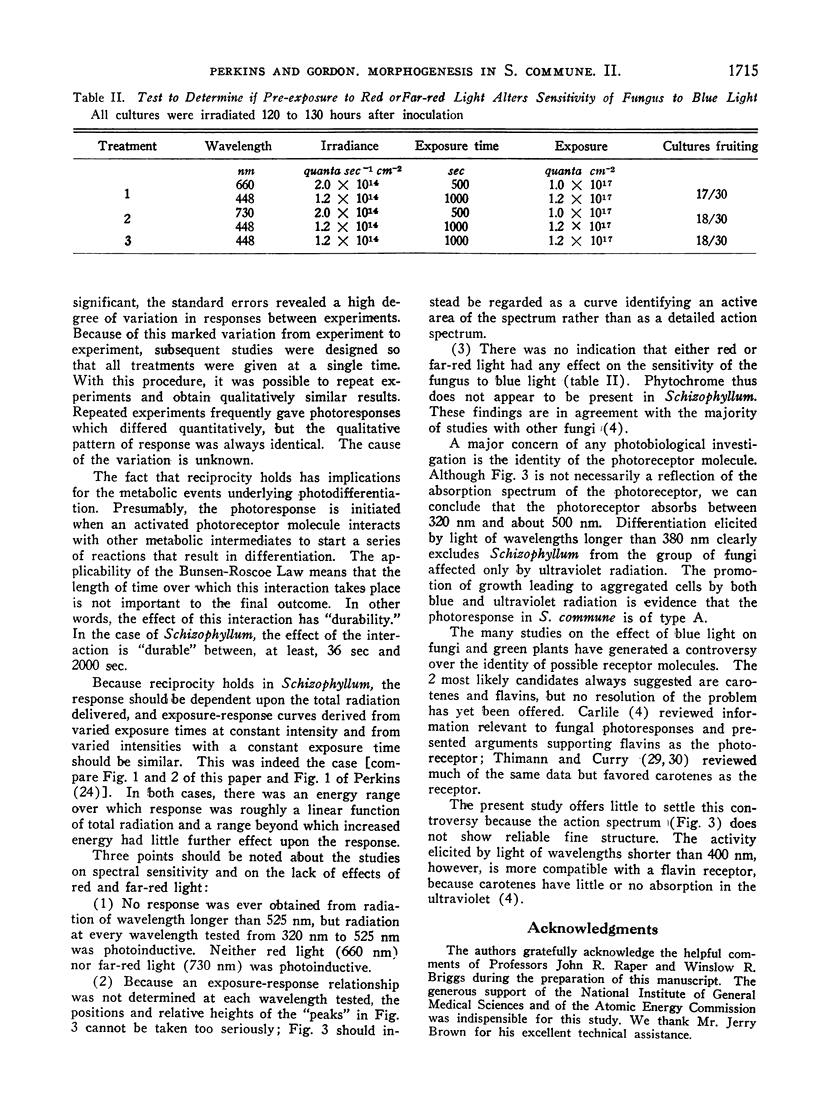
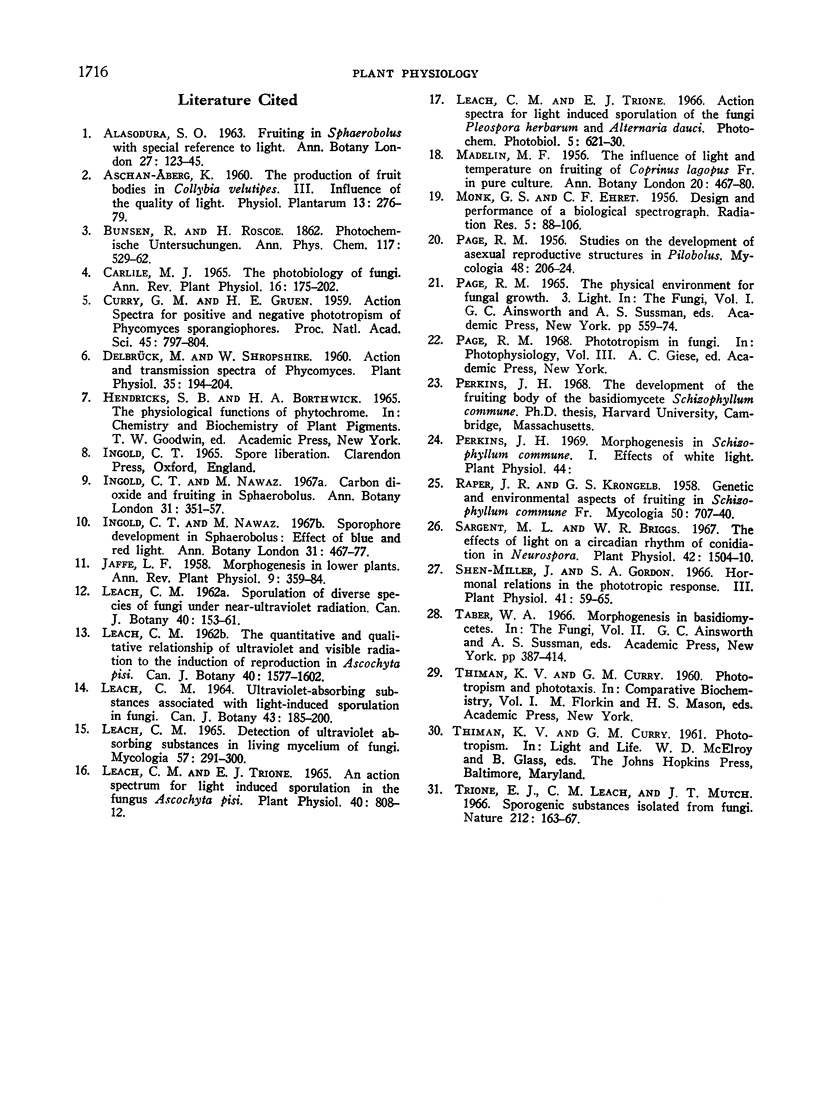
Selected References
These references are in PubMed. This may not be the complete list of references from this article.
- Curry G. M., Gruen H. E. ACTION SPECTRA FOR THE POSITIVE AND NEGATIVE PHOTOTROPISM OF PHYCOMYCES SPORANGIOPHORES. Proc Natl Acad Sci U S A. 1959 Jun;45(6):797–804. doi: 10.1073/pnas.45.6.797. [DOI] [PMC free article] [PubMed] [Google Scholar]
- Delbrück M., Shropshire W. Action and Transmission Spectra of Phycomyces. Plant Physiol. 1960 Mar;35(2):194–204. doi: 10.1104/pp.35.2.194. [DOI] [PMC free article] [PubMed] [Google Scholar]
- Leach C. M., Trione E. J. An Action Spectrum for Light Induced Sporulation in the Fungus Ascochyta pisi. Plant Physiol. 1965 Sep;40(5):808–812. doi: 10.1104/pp.40.5.808. [DOI] [PMC free article] [PubMed] [Google Scholar]
- MONK G. S., EHRET C. F. Design and performance of a biological spectrograph. Radiat Res. 1956 Jul;5(1):88–106. [PubMed] [Google Scholar]
- Sargent M. L., Briggs W. R. The effects of light on a circadian rhythm of conidiation in neurospora. Plant Physiol. 1967 Nov;42(11):1504–1510. doi: 10.1104/pp.42.11.1504. [DOI] [PMC free article] [PubMed] [Google Scholar]
- Shen-Miller J., Gordon S. A. Hormonal Relations in the Phototropic Response: III. The Movement of C-labeled and Endogenous Indoleacetic Acid in Phototropically Stimulated Zea Coleoptiles. Plant Physiol. 1966 Jan;41(1):59–65. doi: 10.1104/pp.41.1.59. [DOI] [PMC free article] [PubMed] [Google Scholar]
- Trione E. J., Leach C. M., Mutch J. T. Sporogenic substances isolated from fungi. Nature. 1966 Oct 8;212(5058):163–164. doi: 10.1038/212163a0. [DOI] [PubMed] [Google Scholar]


